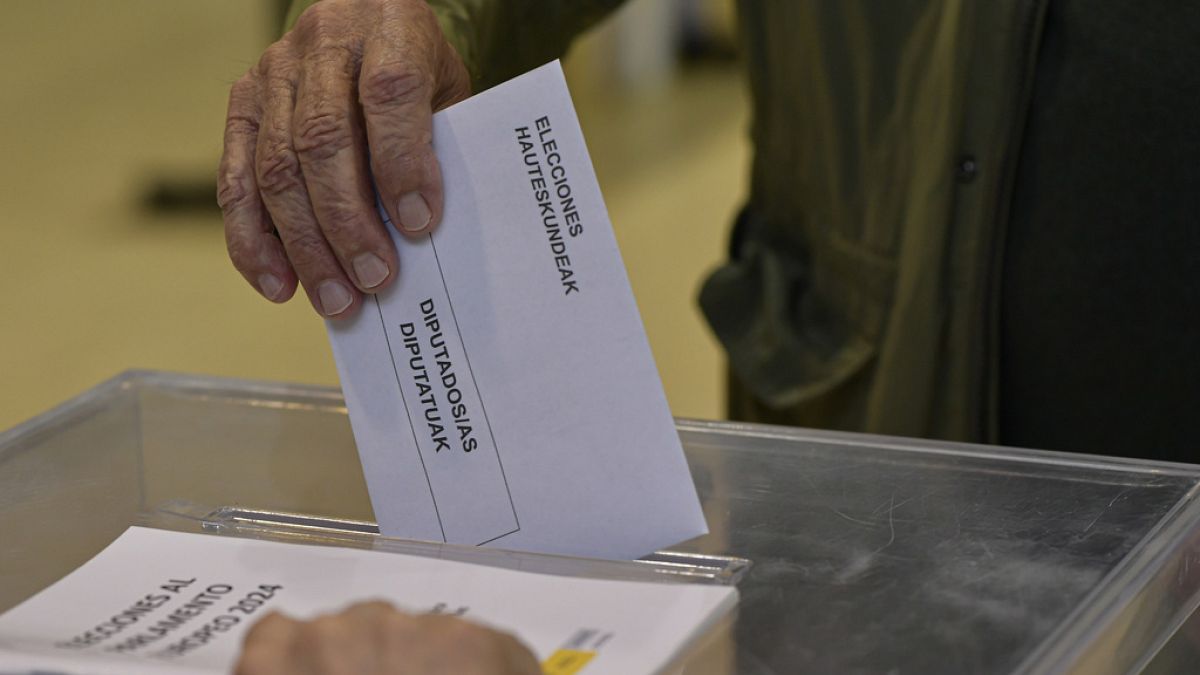The centre-right Partido Popular (PP) saw a 12% increase since the last elections, and far-right Vox doubled its seats in the European Parliament on Sunday.
Spanish centre-right Partido Popular (PP) gained a small advantage over Prime Minister Pedro Sanchez' socialist PSOE, while a new far-right party entered the European Parliament, according to first estimates.
The PP, led by Alberto Núñez Feijóo, received 32.4% of the votes, a 12% increase since 2019, as the socialists retained slightly over 30% of support, a 2% dip from the last election.
Núñez Feijóo's party, which currently has 13 seats in the European Parliament, is expected to get 21 to 23 seats based on the exit poll results, while Sanchez' party, which has 21, should get between 20 to 22 places.
The far-right Vox party should almost double their MEPs and get between six and seven seats in Parliament after receiving 10.4% of the votes, a 4% increase compared to 2019.
Yet, one of the biggest surprises is the rise of another far-right Spanish party, Se Acabó la Fiesta or The Party is Over, founded by so-called anti-establishment social media personality Alvise Perez, which would enter the European Parliament with two to three MEPs after receiving 3.9% of votes.
Vox's spokesperson, José Antonio Fúster, said the results proved an "undeniable fact" and the "advancement of patriots and sovereigntists" in the European Parliament. He also said Vox would act as a "glue" for all of the other far right parties in Europe.
The PP had been hoping to capitalise on voters' discontent over Prime Minister Sanchez' divisive amnesty law for Catalan separatists and the judicial probe into his wife, Begoña Gómez.
Even though results slightly favoured the PP, the PSOE comes out of these elections "reinforced," Juan Soto, founder of consulting company Fortius, told Euronews, which could complicate Núñez Feijóo's leadership. Despite the controversies surrounding Prime Minister Sanchez in the last weeks, his party only lost one seat compared to 2019, Soto added. "With everything in its favour, the PP still hasn't managed to win comfortably," Soto said.
Sanchez's coalition partner, left-wing Sumar, should secure three to four seats after receiving 6.4% of votes. Other left-wing Podemos party is expected to have two to three MEPs, with 4.4% of support.
Ahora Republicas, a group that includes the separatist group EH, should also get between two and three seats, according to results.












